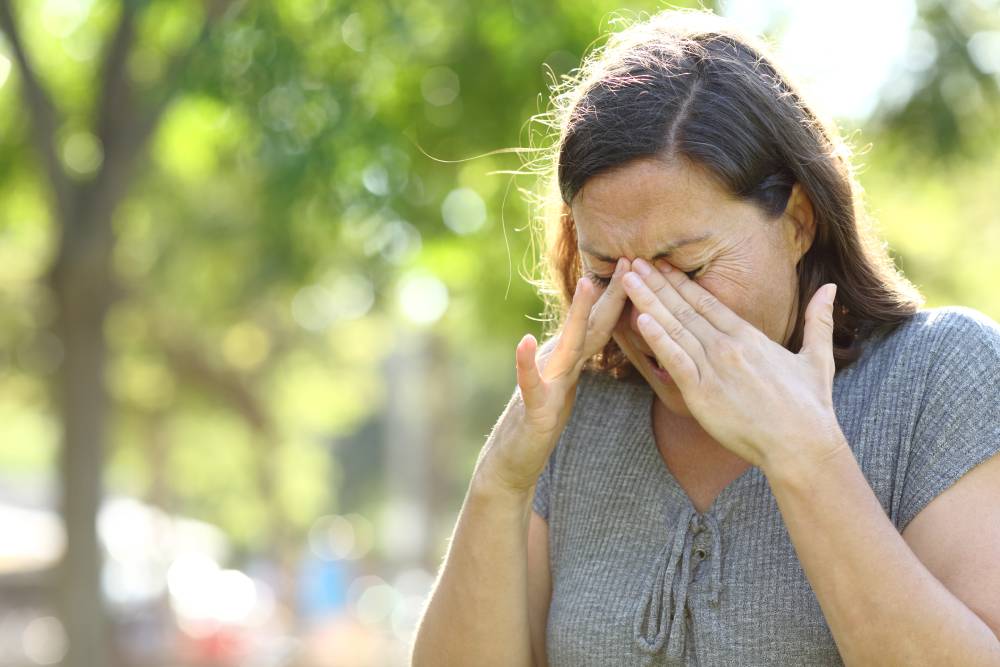
Studies suggest that around 50 million U.S. adults experience allergies every year, and many of these people find that their allergies affect their eyes. Allergies occur when the body identifies a usually harmless substance as being dangerous and releases chemicals to fight against it. These chemicals cause the symptoms that we most commonly associate with allergies.
Many people confuse eye allergies with another condition known as dry eye syndrome. Dry eye syndrome occurs when the eyes fail to make sufficient tear film, or the tear film doesn’t contain the correct balance of components. Although dry eye syndrome and eye allergies are not exactly the same thing, they do share many similarities. These are predominantly the symptoms that both conditions cause.
Symptoms shared by allergies and dry eyes include:
Eyes that are irritated
Redness of the eyes
Feeling as though there is a foreign body in your eyes
Eyes that feel stiff and dry
Blurred vision
Excessive watering
The main difference between the two is itchiness. Itchy eyes are a common symptom of eye allergies and occur because the allergic reaction causes the body to release a chemical called histamine which is responsible for triggering the itch response. People who have dry eye syndrome rarely experience this type of irritation. However, rubbing your eyes to alleviate the itchiness could actually make the other symptoms associated with dry eyes worse.
Here are our top tips for preventing dry eyes during allergy season:
Monitor The Pollen Levels
Pollen counts are often displayed on weather reports and indicate how much pollen is likely to be in the air. If you have a pollen allergy, a high pollen count means that your allergy symptoms are likely to be much worse. If you can, you should stay indoors and keep windows and doors closed to prevent pollen from entering your home.
Get Changed When You Come Home
If you have spent time outdoors during allergy season, you should ideally take a shower and change your clothes as soon as you come home. This will prevent you from being exposed to allergens for longer than necessary.
Wash Your Face Before Bed
During the course of the day, allergens may have attached themselves to your face and these will trigger allergy symptoms through the night. Wash the allergens of the day away before bed to minimize their effect.
Avoid Certain Environments
Depending on what triggers your allergies, it will be helpful for you to avoid dusty, smoky, and dry environments as these could trigger an allergic reaction and worsen your symptoms of both your allergy and dry eye syndrome.
Avoid Using Contact Lenses
If you usually wear contacts, we recommend that you switch to glasses during allergy season if you can as eye allergies can make them harder to wear. If you want to try and stick with wearing contacts, be particularly mindful of your cleaning routine to make sure that your lenses stay free of allergens.
Take Lots of Screen Breaks
Spending too long in front of a screen is bad for our eyes as they experience prolonged periods of focus. We also blink less when we use digital devices. Regular screen breaks will help to minimize the effects of dry eyes.
Drink Plenty of Water
Staying hydrated will boost your whole-body health, as well as the health of your eyes.
Ask Your Eye Doctor About Potential Treatments for Dry Eyes
There are lots of different treatments that can help to counteract the effects of dry eye syndrome. Your eye doctor will be happy to discuss the various options available to you and recommend the treatment that they feel would be most effective. It’s important to be aware that sometimes it’s a case of trying several different treatments in order to find the one that works best.
Some of the therapies that you may be recommended to try may include:
Artificial tears
Prescription eyedrops
Punctal plugs, which stop tear film from draining away from the surface of the eyes
LipiFlow thermal pulsation treatment to unclog the tear ducts
IPL intense pulsed light treatment
Learn more about allergies and dry eyes, contact Urban Optics in College Station, Texas at (979) 690-0888 to book an appointment.












